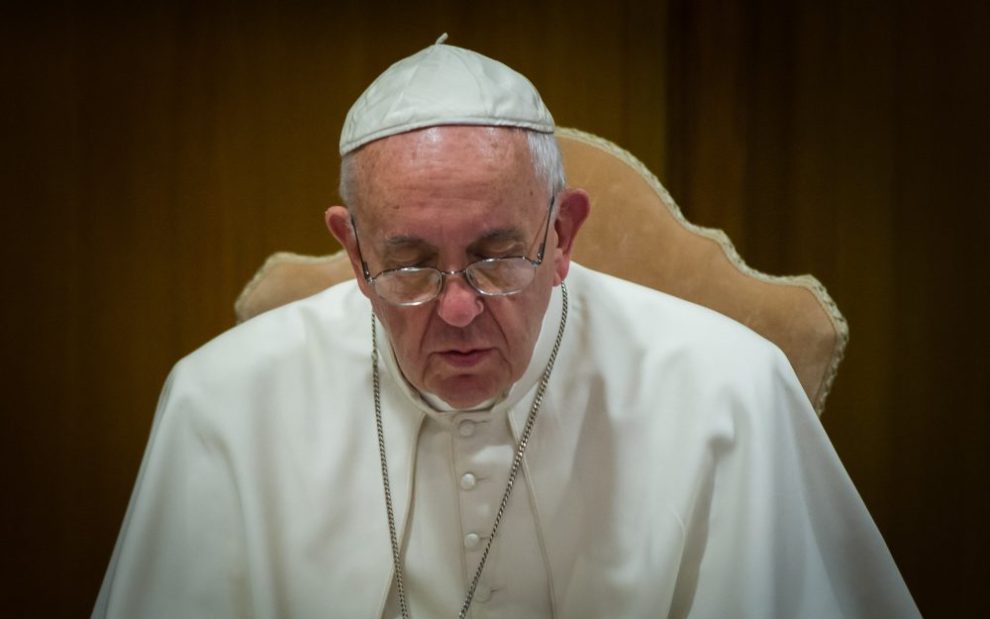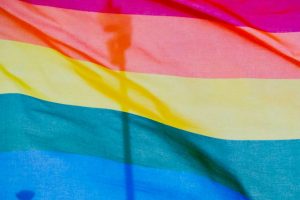The recently released declaration “Fiducia Supplicans” has spurred quite the online discourse. With responses ranging from calls for schism to false assertions that the church has changed its doctrine of marriage, it is clear that a nuanced look at the specifics of the document is important. At its core, the document clarifies what is meant by a blessing and thus approves the extension of blessings upon individuals in same-sex unions: “A blessing … descends from God upon those who… do not claim a legitimation of their own status, but who beg that all that is true, good, and humanly valid in their lives and their relationships be enriched, healed, and elevated by the presence of the Holy Spirit …”
The document’s most urgent assertion is that blessings are distinct from liturgical rites and must remain so, to avoid confusing sacramentals from formal sacraments. The document takes care to highlight the spontaneity unique to the form of blessing.
Church teaching on same-sex unions has not changed; the church does not recognize them as marriages.
The biggest change is a clarification of the assertion made by the Dicastery for the Doctrine of the Faith two-and-a-half years ago that the church “cannot bless sin.” Does a blessing convey approval of a civil union that itself implicitly suggests sinful activity? The answer necessarily involves an explanation of why the Catholic Church views homosexual acts as sinful. One argument is that these acts—even homosexuality itself—are not “natural.” That companionship between one male and one female is God’s intention or ideal. One could ask: what, then, should we make of the fact that dozens of other species experience homosexual attraction and partnership?
The declaration uses the phrase “irregular situation,” an umbrella which also notably includes divorced people. With the high percentage of queer and divorced people in our society, it is worth continuing to meditate as a church on what precisely informs our notion of “regular” or “normal.”
Another argument, and the one that the declaration seems to set as primary, is the ethical one: That a sexual act must be both unitive and procreative in order to be morally permissible, and homosexual unions lack the procreative component. Some use this argument to assert that, absent the potential consequence of pregnancy, sexual pleasure is elevated to a place in a homosexual union that is not rightly oriented. This line of thinking, when ascribed to an entire group of people, can contribute to the bigoted assumption that homosexual unions are less committed, self-giving, or open to parenthood. The reality is that same-sex unions can be shining examples of God’s love, even if they are not sacraments. As Jesuit Father James Martin said in his recent post marking the occasion of his first same-sex blessing, “Before this, I’ve been blessed by [them].”
Another major priority of the declaration is to reduce confusion around the context of a blessing. As the declaration makes clear, a blessing is not an assent to misbehavior. Neither do blessings have “moral requirements.” Blessings are not conditional because God’s love is unconditional. The declaration asserts that it would be wrong to “expect the same moral conditions for a simple blessing that are called for in the reception of the sacraments… Thus, when people ask for a blessing, an exhaustive moral analysis should not be placed as a precondition for conferring it… those seeking a blessing should not be required to have prior moral perfection.” No one is morally perfect.
A blessing also does not promise transformation. Still, the prevalence of healing language in this new declaration as well as the U.S. bishops’ response—which cites the purpose of the blessing to be accompaniment in the service of “God’s healing love and mercy”—concerns me.
As a person who writes about bodies and healing, I am keenly aware of the Christian predisposition toward viewing prayer as a means to an end, a funnel by which we receive God’s gifts. When Christians speak of healing, they’re almost always speaking of change. Particularly, a change of state. From blind to seeing, from sinner to sinless. These analogies themselves are harmful. They undergird everything from ableist interpretations of scripture to conversion narratives for queer people to prosperity gospel lenses of earthly wealth.
The wound of homosexuality is not that it exists. We are far past the time of realizing that a person does not choose their sexual orientation. The wound of homosexuality is the lie that God hates homosexuality. The wound of homosexuality is the harm done by the church for the sake of this lie.
Still, the declaration is riddled with language of healing, salvation, “living rightly,” and even “rehabilitation.” While it goes without saying that God desires us to live abundant lives aligned with God’s will, this language can be a slippery slope to blessings being given with a specific outcome in mind. We must insist that the healing extended during the blessing of a queer person is not that the person be “saved” from their homosexuality. A gay person for whom a blessing from the church would be meaningful is unlikely to experience a change of opinion about the union they seek the blessing of.
Prescribing transformation to a blessing is precisely the confusion this document hopes to avoid. If we were to assume a blessing would transform the recipient, we would be ascribing a grace reserved for the sacrament of marriage.
As Yunuen Trujillo, author of LGBTQ Catholics: A Guide to Inclusive Ministry (Paulist Press), said on Instagram, “For LGBTQ Catholics in loving, committed relationships, God is already present in our relationships, because God is love.” This declaration does not tell LGBTQ Catholics something new about themselves but about the church: The church is moving, and in a direction that prioritizes inclusion. This has been the prerogative of Pope Francis’ papacy, to recenter those who have been on the margins and make them a pastoral priority.
Through this recentering, the declaration is even more important for what it assumes about LGBTQ faith. The false dichotomy that either someone is out and has left the church or that someone is closeted, still practicing, and hoping for transformation out of their attraction, is just that: false. This document implicitly recognizes the spectrum of LGBTQ spirituality. As such, each LGBTQ person will likely feel differently about this declaration. For some, this is a long-awaited affirmation that their love of the church is reciprocated. For others, this is too little, too late.
There is work still to be done, particularly in the hearts of those who are not LGBTQ. Even if you believe homosexuality is sinful, straight people also sin. The difference is not in degree but in visibility. If I defy the command to engage in both unitive and procreative sex with my husband—an expectation of my sacramental marriage—showing up to Mass with my husband does not “out” my trespasses. Our LGBTQ siblings are not afforded that luxury of privacy.
To approach God’s table and to ask for spiritual support still places the onus of responsibility on the marginalized, unless a minister or church community has fostered a space of inclusion that would anticipate such a vulnerable request. The declaration rightly calls such a blessing “a tribute to the faithful People of God, who worship the Lord with so many gestures of deep trust.” This document is an invitation. Those in pastoral leadership must answer.
Image: Mazur/catholicnews.org.uk (CC BY-NC-ND 2.0)














Add comment